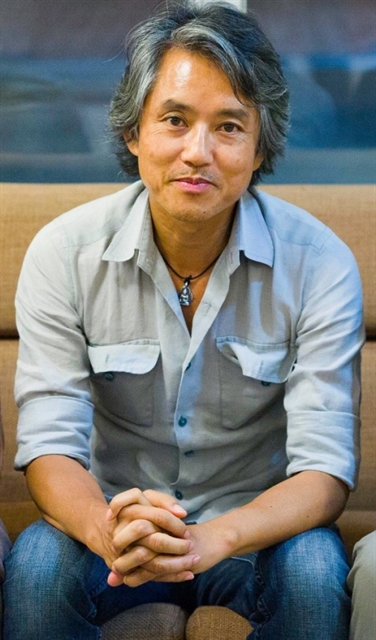[ad_1]

Photos on the Mekong River by Lâm Đức Hiền are on display at French Cultural Centre until September 12 in Hà Nội. Due to the COVID-19 outbreak, the exhibition can be seen online at https://bit.ly/3vl3WPn
Hiền was born to a Vietnamese father and Laotian mother. He settled in France in 1977. He has won many photography awards including the Leica Award, the Nomadic Chronicles Award in Honfleur and the World Press’ 1st Prize Portrait.
He spoke with Thể Thao Văn Hóa (Sports & Cultures) newspaper about his career.
How did you choose the photos currently on display in Hà Nội?
The photos in this exhibition are among the photos on display in Paris, on the Luxembourg garden iron fence in front of the French Senate.
It is also the result of cooperation between L’espace and Matca Photography Space. They asked me to participate in this large scale photography event.
I was very proud and let Matca choose the photos and suggest the exhibition set up. I just approved but the setting up has exceeded my expectations.
There’s a corner for photos of Việt Nam including your grandmother. What message do you want to convey?
The beauty. I was born in Laos to a family of Vietnamese descent. My childhood was attached to my maternal grandmother and the Mekong River.
I remember my family story told by my maternal grandfather about escaping from famine during the Indochina war.
I would often play truant on the banks of the Mekong River under the scorching sun.
I also remember the mornings my grandmother made papaya salad, rice, and grilled meat and sold it on the banks of the Mekong. In the afternoons, I would go out there with her for hours.
I love being with her surrounded by buyers and they would tell me stories. I would help her push the cart home.
The most exciting time was when I helped her count the proceeds after a day of selling food. Through that, I learned to count. It’s an old story and my best memory.
When I crossed the Mekong leaving Laos at the age of 12, the last thing I saw was my grandmother.
The exhibition entitled Mekong: Stories of Man, what does it say about the river?
The river has been distorted by many dams and its flow has slowed down leading to a change in the water colour. Water becomes transparent and stagnant at many sections of the river. Normally, the water colour is a little orange from the alluvium.
The increasing pollution on the river banks is also worrying. The river, which feeds many people, is dying.
Why do you want to keep memories by taking photos?
I had an up and down childhood. But the most important thing is that I had good memories with my grandparents in Paksé in Laos with a lot of love. Perhaps it is the best memory in my life and it makes me want to find my past.
The first time I returned was in 1988 when I was a fine arts student. At that time, I began to create a photo collection entitled Desir d’ Exil (Desire for Exile). It’s a trip back to my childhood.
Every time I return to Laos, I take pictures of the house, the neighbours, the relatives, aunts and uncles to keep their images.
I try to focus on capturing the characters’ faces although I don’t know what to do after that. But I keep taking photos.
When I returned, my grandmother took me to take photos of older people. She told everybody that I like taking photos of older people. She makes me laugh and remember about Vietnamese old people with wrinkles and black teeth.
Did you choose photography or did photography choose you?
I never thought I would be a photographer. I wanted to be a linguist and an artist so I studied fine arts for 5 years. I wanted to be a painter and majored in painting, visual arts and installation art.
I came to photography by chance. For me, photography is media using photos.
For me, photography is a medium using images to generate attention for the causes that I have always been concerned about.
Have you been influenced by different cultures of Laos, Việt Nam and France?
I think that the more I feel I belong to any culture the more fully I receive it. The convergence of different cultures makes me a global citizen. VNS
[ad_2]
Source link
